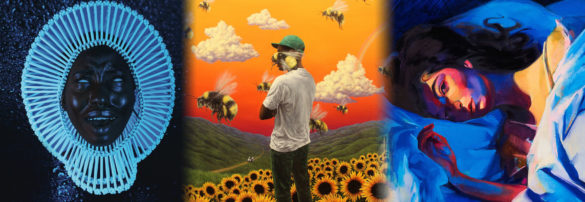
By Suzane Jlelati, Staff Writer
The 2017 Grammy nominations were announced on Nov. 28 and this year’s nominees in the Album of the Year category, consist of: no white men, multiple People of Color (POC) and women, for the first time since 1999.
This year’s nominees are mainly artists of color who represent not only Pop, but Hip-Hop and R&B, genres which are getting high gratitude and recognition. Some include Tyler the Creator, Kendrick Lamar, Childish Gambino, Khalid, Migos, SZA and Jay-Z leading the pack as the most nominated artist this year.
“I’m kind of expecting Jay-Z and Kendrick Lamar to win since they were both nominated multiple times and already have several Grammys,” said senior Raina Guerrero. “I really hope SZA wins at least one of her five nominations; she’s one of my favorite new artists.”
Women are even taking a large role in this year’s Grammys. Lorde’s “Melodrama” is nominated in Album of the Year, Alessia Cara, Julia Michaels and SZA are nominated for Best New Artist and Cardi B for Best Rap Performance and Best Rap Song, to name a few.
Luis Fonsi and Daddy Yankee have even broken the language barrier in music as their Spanish song “Despacito” has made it in the Song of the Year category.
Last year’s nominees were mainly white artists, and when Adele won Album of the Year instead of Beyonce’s “Lemonade”, backlash was formed from lack of representation. But this year’s nominees puts a new spotlight on POC and their music.
“As a minority myself, I am extremely proud of the increasing diversity of artists,” said senior Lily Vu. “Almost all music today has been created or been influenced by African Americans from their contribution of jazz and the blues and subsequently shaping all other genres.”
This year’s Grammys are taking a step to put the limelight on POC and their wide range of music, which should be accepted and represented in today’s diverse society. If any of these artists win, it will be a huge step in music industry and change the way listeners all over the world view music and its artists.
“I hope there will be even more representation for minorities, and more people will start to embrace non-white artists and not only the ones that make strictly rap,” said Guerrero.





